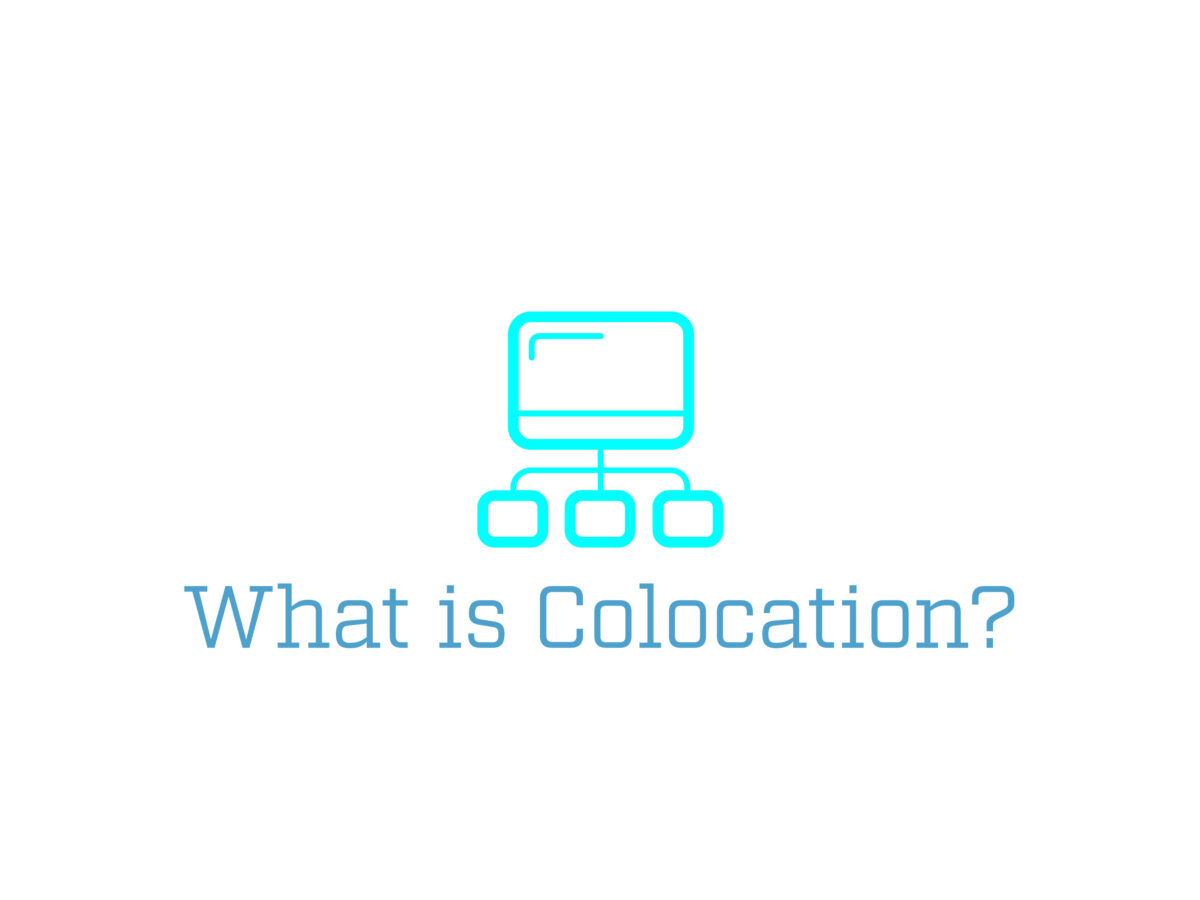Colocation is a service where you can rent a physical space in a datacentre to hold server equipment that you own.
The data centre would take care of all the essentials needed to run a server. Power, cooling, connectivity, and of course the data hall your server sits in are provided. A good data centre would also put in contingency measures in place to ensure the performance and uptime of your servers such as back-up power, multiple connection lines as well as security.
Colocating your server would allow you to benefit from a data centre’s purpose-built infrastructure specifically designed to protect it from outages and ensure maximum server availability.
Why would you use a colocation service?
Costs & Space limitations
The costs associated with building an environment suitable for the optimal performance of the servers would be out of reach for most people or businesses.
Firstly, Servers need to be kept cool so they need to be in a room with a controllable climate – this is typically at a temperature much lower than standard room temperature. This is why it’s never a good idea to keep your server in the same room as you, or even under the desk. Servers are fairly noisy, too, which isn’t ideal.
Secondly, space may be limited in your own premises that it wouldn’t be viable or even cost effective to create a dedicated environment for your equipment.
To colocate your server would be a fraction of the cost in comparison to doing this all in-house. You would also free up a considerable amount of space in doing so, too.
Resilience & Reliability
Having a server in your own premises would also mean that you’ll be responsible for it’s resilience and contingency planning. Not only does this add to the costs of running your server in-house, it requires a lot of other considerations.
What happens if you have a power surge or an outage? What if your connection goes down or it simply can’t handle the traffic load? These things you would need to plan against which means installing Uninterrupted Power Supplies (UPS), multiple lines of connectivity, monitoring equipment – the list goes on. These are all essential to ensure the uptime of business critical systems and shouldn’t be overlooked.
All these would be handled by the data centre if you were to colocate. You’ll take advantage of the infrastructure that was specifically designed to have multiple contingency plans to ensure the highest availability of your servers, so you can concentrate on running your own business.
Monitoring, Management
Colocating your server would transfer the responsibility of monitoring, management and security to the data centre. A good colocation provider would have dedicated technical staff to monitor the health of your servers (if required) to ensure uptime and have support available around the clock to handle any issues that may arise. Data doesn’t sleep, so your support shouldn’t either.
Security
Your data is important, especially if you hold sensitive information such as bank details and other critical client information.
To colocate your server to a data centre, you would benefit from the physical onsite security that would be designed specifically to make access to your servers by a third party extremely difficult. Things such as CCTV systems, controlled entry, secured cabinets, and manned security would all be measures expected from a data centre as standard.
This takes away the worries of having sufficient onsite security when keeping server hardware in house.
Flexibility
Keeping your hardware in a colocation centre would mean that you’ll experience less headaches if your company decided to relocate their offices. You wouldn’t need to think about disruption to the business services by having to unplug everything and set up at a new location as your servers would be held at a colocation centre.
In addition to this, if you suddenly have a requirement to increase the number of servers due to rapid business expansion, the data centre would be more than equipped to do so. Unlike a business premises, a datacentre would have a highly scalable infrastructure. Space in particular would be more readily available compared to a non-dedicated in-house premises.
If you are looking to transfer risk, management and costs of hosting your own server hardware and colocate your servers, it would be a good idea to arrange a visit to the data centre that you have in mind. This is important so you can see for yourselves the levels of precautions and security measures invested in keeping your data safe and service running.
It’ll also be a good idea to take that time to get to know the people behind the data centre. Colocation is more of a partnership and relationships are important. You want to ensure that you are getting good, friendly staff and expert levels of support. At the end of the day, you’re renting a space for hardware you own, and ensuring that you have a good relationship with the data centre is paramount to a successful tenancy.
If you would like to more about colocation and have questions about migration, feel free to drop us a message via our website, phone, or web chat.


